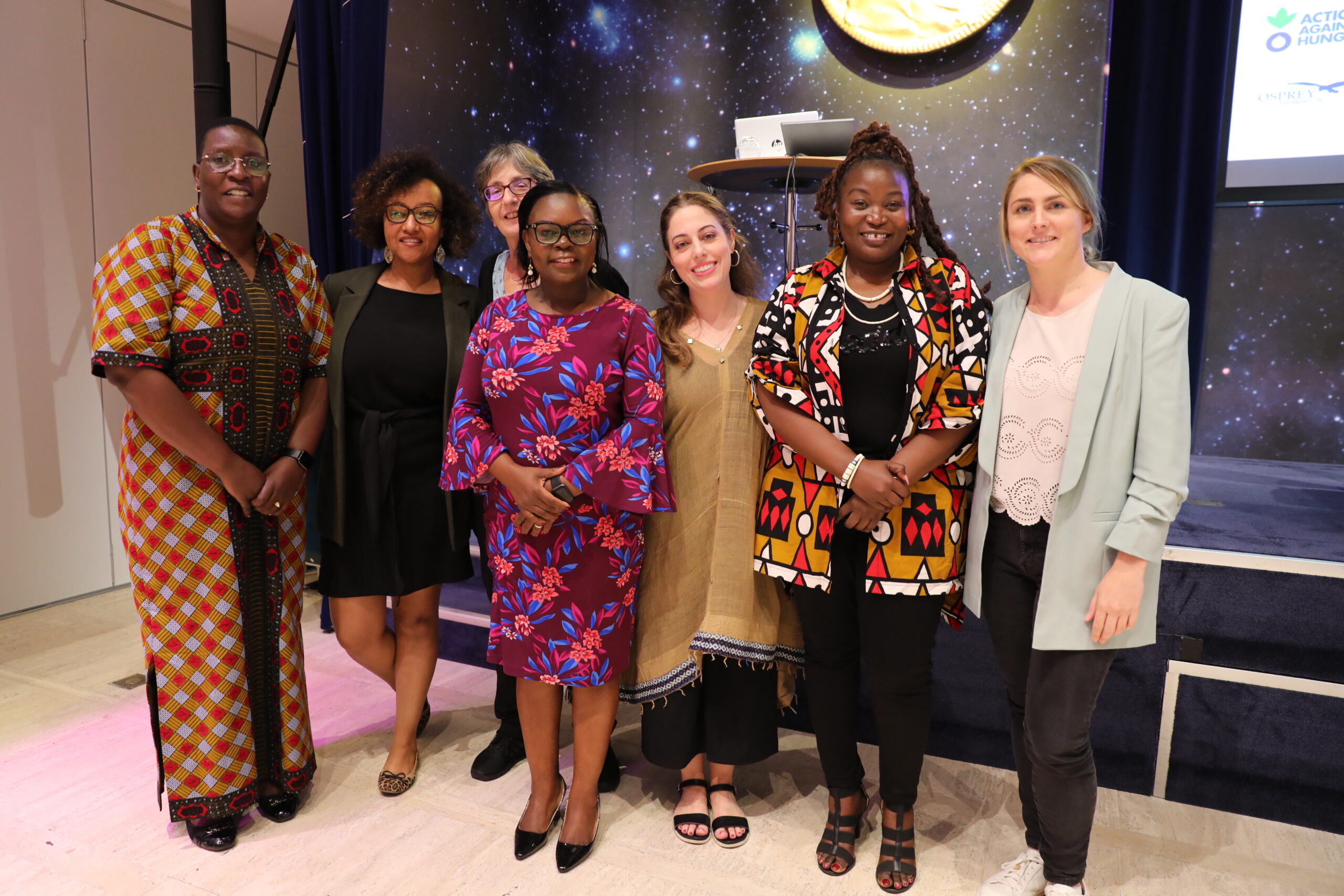
Caption: An inspiring group of women water and sanitation professionals captured during World Water Week 2023 (L to R): Jane Nabunnya, Bethlehem Mengistu, Helen Pankhurst, Kate Harawa, Alec Shannon, Irene Gai, and Tara Bartnik. (Dennis Lupenga/WaterAid)
The water and sanitation sectors have historically been male-dominated due to embedded gender and social norms, thereby restricting women’s study and employment in these fields. The lack of women role models has further contributed to the prevalence of men in technical and decision-making roles. While progress has been made in recent years, achieving gender parity in these sectors remains a challenge.
Gender disparities are especially pronounced in leadership roles within water-related career opportunities, such as utilities, ministries, and senior roles in non-governmental institutions. A World Bank study from 2019 conveyed that only 18% of their workers from 64 water and sanitation service providers worldwide were women, and only 23% of engineers and managers in a utility were female. These disparities start at the university level, which is why encouraging more girls to study science, technology, engineering, and mathematics related topics is crucial for untapped talent for the water and WASH sectors.
This is also where mentorship emerges as an effective strategy to help close this gender gap, since it enables professional development, equipping women with the skills required to navigate systemic barriers and collectively level the playing field. As a global network, RWSN has supported an annual mentoring scheme for young water professionals since 2019. This year, we are teaming up with Agenda for Change to offer both a general mentoring track and one specifically for women water and sanitation professionals, encompassing mentors and mentees at any career stage.
Mentorship benefits both mentors and mentees, fostering a win-win situation. The mentor’s role includes active listening skills, offering empathetic understanding to your mentee, and providing clarity on their personal and professional objectives. This dedicated focus on another’s journey fosters personal and professional growth, as seen in the example questions mentees bring (below), ranging from career paths to organizational decisions:
- Does the student finishing her PhD really want a career in international development or will she achieve much more in her own country?
- Should the mid-career consultant take over the retiring boss’s company or step away from water consulting completely?
- How should an NGO manager rebuild and refocus the organisation after COVID?
Sponsorship complements mentorship. While mentorship enhances skills, provides guidance, and offers coaching, sponsorship goes further. The mentor becomes the mentee’s advocate, facilitating connections, and acts as an amplifier. This external facing aspect is equally vital and boosts the mentees access to opportunities.
On Women’s Day (and everyday), it is important that senior women not hinder the progress of those following in their career footsteps. Equally, for men to be subtle champions for women, fostering respect and an openness to learn about invisible barriers they may face. Ultimately, collaborative efforts between genders will continue to ensure continuous flow of talent that benefits us all.
Happy International Women’s Day!
_______________________________________________________
We are thrilled to announce our joint RWSN and Agenda for Change mentorship program in 2024! Applications will open on 14 March 2024.
This year’s programme features three tracks:
- Women in WASH (for women only – with traditional and near-peer mentoring tracks)
Career Progression (for young professionals of both genders)
Solar pumping and groundwater courses alumni (by invitation)
Find more details on the eligibility criteria and on how to apply here: RWSN Mentoring programme and here: Agenda for Change Women in WASH mentorship program.
